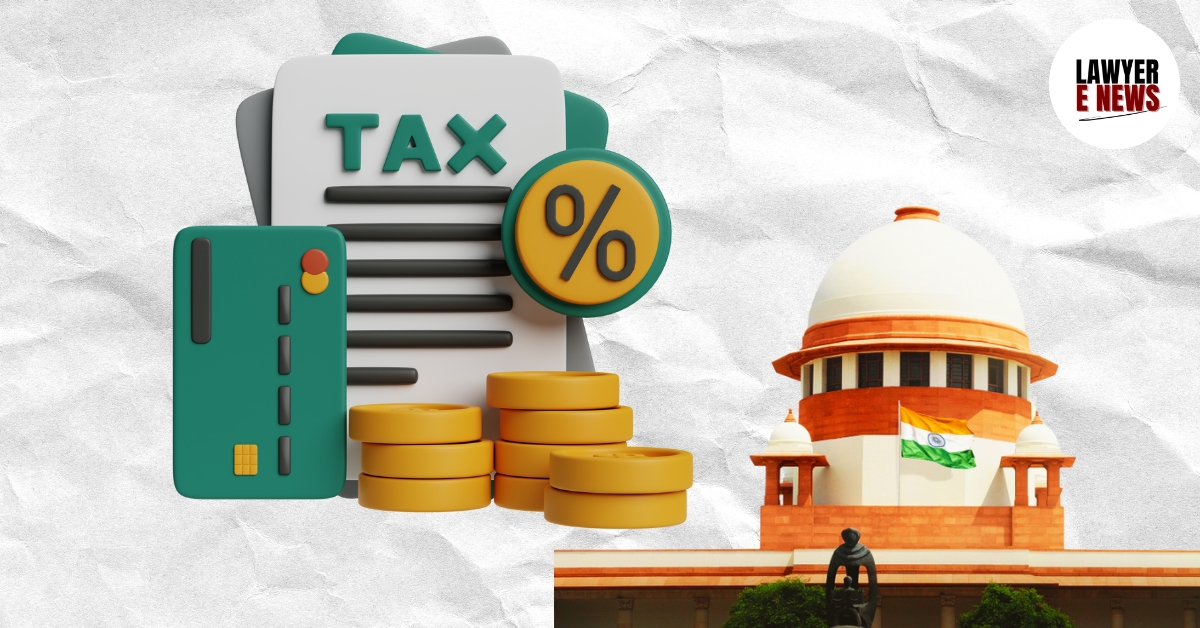-
by sayum
17 February 2026 5:39 AM



“Encashment Was Coercive, Not Voluntary Payment—Unjust Enrichment Doctrine Doesn’t Apply”, In a decisive affirmation of taxpayer rights, the Supreme Court directed the Union Government to refund over ₹77 lakh to Patanjali Foods Ltd., formerly Ruchi Soya Industries Ltd., along with 6% interest. The money had been forcibly recovered through encashment of bank guarantees in a customs duty dispute that the company later won in the apex court. Delivering the judgment, Justice Ujjal Bhuyan held, “Encashment of bank guarantees furnished as security cannot be treated as payment of customs duty.”
Rejecting the government’s attempt to invoke Section 27 of the Customs Act and apply the doctrine of unjust enrichment, the Court ruled that such coercive recovery without final adjudication could not be shielded by technicalities. “Respondents are holding on to money of the appellant which they are not authorized to do so,” the Court declared, ordering immediate refund.
In 2002, Ruchi Soya Industries (now Patanjali Foods) imported crude degummed soyabean oil through Jamnagar port. A dispute arose when Customs demanded a higher tariff rate under a notification issued under Section 14(2) of the Customs Act, which the importer claimed had not yet come into force. Pending litigation, the High Court allowed clearance on furnishing bank guarantees for the differential duty, totaling ₹77.43 lakhs.
The company later lost the case in the Gujarat High Court, and in 2013, the Customs Department encashed the bank guarantees. But in 2015, the Supreme Court ruled in Param Industries Ltd. that the very notification in dispute was invalid as it had not been made publicly available at the time of import. Following this, Patanjali filed for refund.
Despite the clear apex court ruling, Customs insisted that Patanjali file refund claims under Section 27 and prove that the duty had not been passed on to customers—invoking the principle of unjust enrichment. The Gujarat High Court sided with the Department in 2016, leading to the present appeals.
The Bench, also comprising Justice Abhay S. Oka, held that the government’s retention of the refund based on technical objections was unsustainable. The Court observed:
“Under the scheme of the Customs Act, duty is assessed provisionally or finally… Encashment of bank guarantees offered as security cannot be treated as payment of customs duty.”
The Court criticized the Revenue’s “extreme haste” in encashing the bank guarantees despite knowing that the matter was pending before the Supreme Court:
“Respondents could have either awaited the decision of this Court or could have directed the appellant to renew the bank guarantees. Instead, they resorted to arbitrary encashment.”
On the issue of unjust enrichment, the Court drew a clear distinction between actual duty paid and money recovered through coercive encashment of security:
“The key word in Section 27 of the Customs Act is ‘paid’… In such circumstances, the doctrine of unjust enrichment or Section 27 of the Customs Act would not be applicable.”
Referring to binding precedents in Oswal Agro Mills and Somaiya Organics, the Court reaffirmed:
“The furnishing of a bank guarantee is not equivalent to the payment of duty. There is no question of its refund under Section 27 and unjust enrichment cannot apply.”
Allowing the appeals, the Supreme Court set aside the Gujarat High Court’s judgment and directed the Union to refund the full amount encashed under the bank guarantees—₹77,43,859—within four months, with interest at 6% from the date of encashment.
This ruling significantly clarifies that procedural fairness cannot be eclipsed by departmental overreach. As Justice Bhuyan aptly concluded:
“They have no authority in law to hold on to such money… the same has become totally untenable.”
The verdict is a strong message that public authorities must act within constitutional and legal boundaries—even in matters of revenue.
Date of Decision: May 19, 2025
